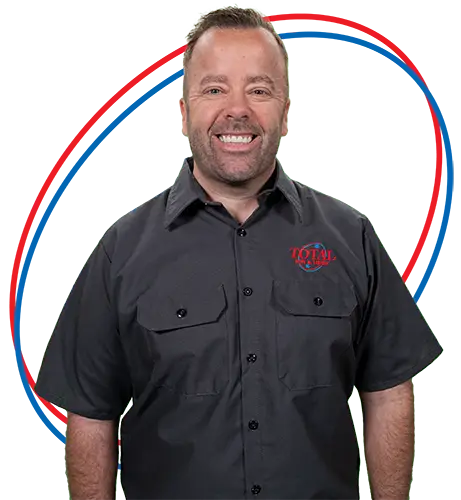
Geothermal power provides an efficient, eco-friendly way to heat and cool your home. The idea of extracting heat from the ground to keep your home comfortable may sound futuristic, but geothermal heating dates back over 10,000 years. The first ground-source heat pump used for home heating and cooling was developed in 1948, and the technology has only improved since then.
How Does Geothermal Heating and Cooling Work?
A geothermal installation includes installing underground piping filled with an eco-friendly antifreeze/water solution. This substance acts as a heat exchanger to extract heat from the ground in the winter and deposit heat from your home into the cooler earth during the summer.
Just like conventional forced-air HVAC systems, a geothermal installation includes ductwork and an air handler. A specific type of heat pump unit delivers heated and cooled air throughout every room in the home.
Benefits of Geothermal Heat Pumps
Choosing a geothermal system over more conventional heating and cooling methods offers several worthwhile benefits, including:
- Energy efficiency: Geothermal heat pumps provide heating and cooling at 25 to 50 percent greater efficiency than conventional systems. This is possible because geothermal heat pumps consume about one unit of electricity to move three units of energy for heating and cooling purposes.
- Short payback period: Depending on soil conditions, tax credit opportunities, and the precise geothermal installation you choose, you can expect to recoup your investment through energy savings in two to ten years. Since the underground piping often comes with a 25- to 50-year warranty, and the heat pump unit often lasts for 20 years or longer, this is clearly a wise investment.
- Excellent humidity control: Geothermal systems keep your home at a comfortable 50 percent relative humidity, making it an excellent option for homes in our humid Texas climate.
- Design flexibility: Because of numerous layout options and open/closed-loop configurations, nearly any site can have one type of geothermal installation or another.
- Zoning compatibility: Zoning allows you to independently heat and cool sections of your home, depending on your needs. Geothermal systems are excellent for accomplishing greater comfort through zoning.
- Low maintenance: With fewer moving parts than air conditioners and furnaces, geothermal systems require very little upkeep while still retaining excellent reliability and efficiency for many years.
Requirements to Install a Geothermal Heat Pump
A geothermal heat pump could be an incredibly efficient option for keeping your Texas home comfortable. The characteristics of your property may affect your eligibility for geothermal heating and cooling and determine the best type of ground loop you should install. Here are three factors to consider.
Land Availability
Factors such as underground utilities, sprinkler systems, landscaping, and the overall layout of your property affect the type of geothermal system you can install. Horizontal systems, which are usually the most economical, may only be suitable for new construction projects with ample surrounding land. On the other hand, vertical geothermal installations and compact “Slinky” designs may be the only options if you are retrofitting an existing site.
Geology
Soil composition affects heat transfer. If your soil has desirable properties, your ground loop may require less piping to gather enough heat from the earth, lowering your installation costs in the process. The amount of soil is another important consideration. If your property has extensive hard rock or the soil is too shallow to dig trenches, you may need to install vertical loops instead of horizontal ones.
Hydrology
If a lake or pond near your home is large enough and clean enough, it may be used as part of an open-loop geothermal installation or a repository for a closed-loop system. Groundwater may also be utilized in an open-loop system, as long as the water quality is good and the geothermal installation meets discharge regulations.
Since antifreeze fluid is fully contained in a closed-loop system, it presents little to no environmental risk. However, if you’re considering an open-loop system, be sure to fully investigate your property first. Problems with aquifer depletion and water contamination can occur if conditions aren’t suited for an open-loop system.
Geothermal Heat Pump Installation in Dallas & Plano
If you like what geothermal heating and cooling has to offer, begin the installation process with Total Air & Heat today! We can assess your home and property to determine your eligibility and recommend an underground configuration to meet your needs.
To learn more about installing a geothermal heat pump in your new or existing home, please contact Total Air & Heat at 972-881-0020. We have proudly served the Dallas/Plano area since 1957.
